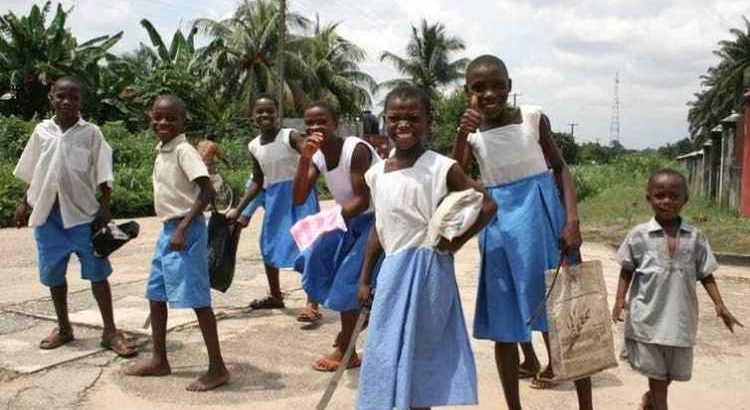Africa/ Nigeria/ 23.04.2019/ Source: www.icirnigeria.org.
NIGERIA’S education system is based on the (1)-6-3-3-4 formula: one year pre-primary education, six years primary, three years junior secondary, three years senior secondary, and a minimum of four years tertiary education.
The model had been used successfully in China, Germany and Ghana before Nigeria adopted it in 1989.
But it’s never been fully implemented in Nigeria. Although successive governments have theoretically upheld its objectives, none has successfully implemented the policy.
Nigeria’s educational system is in assorted crises of infrastructural decay, neglect, waste of resources and sordid conditions of service. The country has over 10 million out-of-school children. That’s the highest in the world. Another 27 million children in school are performing very poorly. Millions of Nigerians are half-educated, and over 60 million – or 30 per cent – are illiterate.
On top of this, many eligible young Nigerians can’t gain admission into public universities. At the same time prohibitive tuition fees, among other factors, are a barrier to the country’s private universities.
As the Buhari-Osinbajo government starts its second term it should focus on key areas that will dig Nigeria’s education system out of the deep hole it’s in. I have identified five priorities it should attend to first.
Appointment
The new government should appoint an expert Minister of Education, not a political party lackey. In the past, Nigeria’s educational system has fared better under expert education ministers who earned their stripes through the system.
Take Professor Jubril Aminu, who served in the portfolio from 1985 to 1990. The 6-3-3-4 system was inaugurated during his tenure. Aminu also introduced “nomadic education” in 1989 for nomadic Fulani and other migrant ethnic groups.
Aminu was followed by Professor Babs Fafunwa (1990 to 1992). He overhauled the national education policy. He also provided room for education in mother tongue, a universal practice which most African countries have not fully implemented. UNESCO recommends education in mother tongue because of its immense advantages.
Lastly, under Professor Sam Egwu (2008 to 2010), a controversial agreement was signed between the government and the union representing the country’s academic staff. The agreement – signed in 2009 after drawn-out negotiations – stipulated conditions of service and remuneration for lecturers, the autonomy of universities and how the government should fund tertiary education.
But successive governments have violated the terms of the pact, claiming that they didn’t have the money to meet some of its terms. Officials claimed that sections of the pact were difficult, and in some cases impossible, to implement. However, the union rejects these claims and has accused the government of using delay tactics and questionable criticisms to frustrate the deal.
Funding
Funding is the biggest problem confronting Nigeria’s education system. The percentage of the budget allocated to education annually is abysmally low. In 2018, only 7.04 per cent was allocated to education. This is far below UNESCO’s recommended 15-26 per cent.
Nigeria’s experience with the commercialisation and neglect of government secondary and primary school levels has led to poorer education outcomes. Nor is privatisation the answer: it’s only likely to widen the gap between the rich and the poor. It will deny many children an affordable quality education, increase the rate of illiteracy and reduce academic performance at the tertiary level.
If the government continues to privatise government-owned universities, as is already the case with the proliferation of private universities with high fees, tertiary education will become the exclusive preserve of the rich upper class. This, in a country where more than 90% of the population is currently living in abject poverty.
The government should also cut wasteful expenditure. For example, I would argue that the “school children feeding programme” is a massive drain on resources.
The government reported earlier this year that it allocated 220 billion naira for the programme and of that, about 50 billion naira was wasted. This money could have been spent on more pressing problems such as building more classrooms and equipping them, supplying teaching and learning materials and improving staff welfare and remuneration.
Money for research
Research suffers in three ways in Nigeria. First, researchers work without sponsorship, particularly in the core sciences. The Tertiary Education Trust Fund is virtually the only source of money. The Trust funds and sponsors research projects give grants for research and sponsor lecturers for academic conferences, among other things. But its resources are limited and its operations are slow, highly selective and sometimes politicised.
Secondly, study findings are often abandoned on library shelves because the government isn’t committed to research-oriented development. Researchers don’t have the means to promote their work and research findings.
Third, research output is mediocre and repetitive because there are no effective measures in place to track research output nationwide.
Stop incessant strikes
In 1978, the Academic Staff Union of Universities was established to represent academic staff in Nigeria’s universities. Since then, there have been strikes almost every year, disrupting the academic calendar.
To stop these annual disruptions, the government must increase budgetary allocations to the sector and honour agreements that have been signed with the unions.
The only way that strikes will be stopped is if the welfare of all staff, from teachers to lecturers, is prioritised.
In conclusion
If these priorities are successfully implemented, Nigeria’s education system would be well on its way to realising the government’s commitment to its own policies and the United Nations’ Sustainable Development Goals.
Source of the notice: https://www.icirnigeria.org/education-in-nigeria-is-in-a-mess-from-top-to-bottom-five-things-can-fix-it/








 Users Today : 277
Users Today : 277 Total Users : 35459872
Total Users : 35459872 Views Today : 451
Views Today : 451 Total views : 3418423
Total views : 3418423